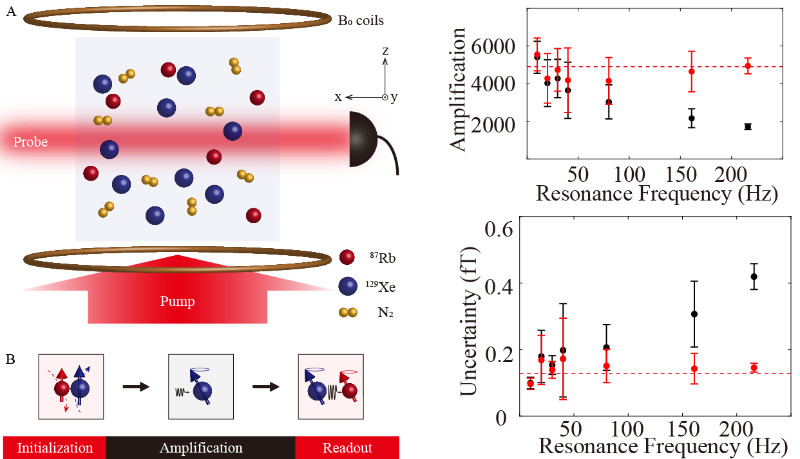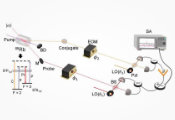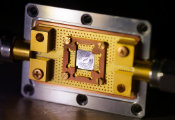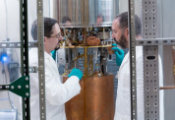USTC Observes Magnetic Amplification Using Dark Spins
A research team led by Prof. PENG Xinhua and Associate Prof. JIANG Min from University of Science and Technology China (USTC) of China Academy of Sciences (CAS), has, for the first time, reported the theoretical and experimental demonstration of quantum amplification using dark spins, with the magnetic field magnification exceeding 5,000 times and the single magnetic field measurement accuracy reaching 0.1fT level. The study was published in Proceedings of the National Academy of Sciences (PNAS).
Quantum amplification is an effective means to achieve precise measurement of weak electromagnetic field, but the performance of spin quantum amplification is limited due to the constraints of initialization of gaseous spin, coherence time and readout sensitivity. Overcoming these limitations is very important for releasing the full potential of quantum amplification.
Researchers have put forward the concept of dark-state spin quantum amplification, and carried out experiments in the mixed system of gaseous xenon and rubidium atoms. In this system, gaseous xenon atoms were used as amplification medium, and rubidium atoms polarized by laser were used as polarization and readout means of xenon nucleus spin.
Unlike previous experiments in which the mixed gaseous atoms were in the same space, and the processes of polarization, amplification and readout were usually carried out at the same time, researchers have found a new way to separate the processes of polarization, amplification and readout by manipulating the experimental conditions such as rubidium atom polarized laser and xenon atom bias magnetic field, so that the xenon nucleus span in a dark state during the quantum amplification process, which was free from interference from polarized rubidium atoms and exerts more potential of quantum amplification.

During signal amplification, the noble-gas spins were placed in the dark without laser light and unaffected by perturbations caused by optically polarized rubidium-87 gas, exhibiting remarkable coherence lasting up to 6 min. The noble-gas spin coherence time was improved by one order of magnitude compared to previous works. The longer-lived nuclear spin coherence, in turn, translated into enhanced spin amplification gain. The researchers observed the magnetic-field amplification by “in-the-dark” xeon-129 gas spins by a factor of about 5400. As an application, the demonstrated amplification was combined with magnetic field sensing, realizing a magnetometer with sub-femtotesla uncertainty in a single measurement for 500 s.
This work points out the potential for higher sensitivity limits in magnetic-field quantum sensing, which sheds lights on biomedical fields such as heart-brain magnetic diagnosis, extremely weak magnetic field measurement of chemical molecules, dark matter detection and so on.




































